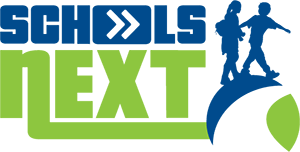
Mentoring Guidelines
School districts, cities, communities and the decision makers within these institutions have a challenging job in dealing with issues concerning learning environments. There is often a sense that overcrowding, growing student population, and building disrepair has reached crisis proportions. The urgency with which these issues are often addressed can sometimes preclude good planning. One often missed opportunity is the involvement of students, the client, in the creation of new learning environments.
When working with students to participate in this competition, volunteer mentors should consider the following issues in helping the students to develop their design projects.
- Students will work in groups to design the projects, following a true planning process.
- Students will utilize and develop skills in math, language arts, communication, leadership, science, technology, architecture and facility planning.
- Students will enhance their awareness of environmental and "green" building issues.
The design focus can be on a single classroom, studio, laboratory, or the entire school and can be new construction or a renovation project. The jury will consider the following criteria in selecting the SchoolsNEXT Design Competition award winners:
Each team is required to submit a
project model, a video and/or PowerPoint presentation and a 850-word narrative description documenting the planning process and rationale. Teams may include perspective drawings, architectural boards or similar renderings.
Submittal Requirements
As you work with the students, it may be helpful to discuss the following topics and questions:
Develop and Implement a Planning Process
Who would be helpful to talk to as you create your ideal space or school?
How would they be of help?
Community Environment
How does your proposed learning environment connect learning to the community?
Are there any partnerships between your learning environment and the community?
How does the community benefit, and how do you benefit?
How will this place help students tie learning to real life and make it more meaningful?
Learning Environment
Why is learning better in the environment you're creating?
What will the learner be able to do that he or she can't do now?
What would a typical day in your learning environment be like?
How does your environment help to make stronger relationships between students, between students and the teachers and students and the community?
Physical Environment
How will this place make it easier for students to learn?
How do people get there – are there buses or cars?
Do students walk or bike?
What are the materials, colors, and textures?
How does your design incorporate energy efficiency?
What are your renewable energy sources?
How does your design preserve the environment?
Given that
Learning happens best when...
|
...all of your senses are engaged, In addition to hearing and sight, pay attention to smell, touch and taste. |
|
...your technology is integrated. Technology should not be an end in itself, but a tool, which enhances your learning experience. |
|
...you feel safe and secure. Learning is about risk taking. A sense of safety and security encourages you to stretch outside of yourself to achieve your best. |
|
...you actively participate, You are actively engaged in making your own learning happen. |
|
...you're connected to the world. There are levels of connections that you make with other learners, with teachers or mentors with the school as a whole and with your community. |
|
...you feel a sense of pride about your school and your community.
|
Acknowledging that all of us can learn, anytime, anywhere, but that all of us learn differently, a variety of learning spaces to engage all learners must be provided.
Most importantly, encourage your students to be as creative as possible and to have fun!